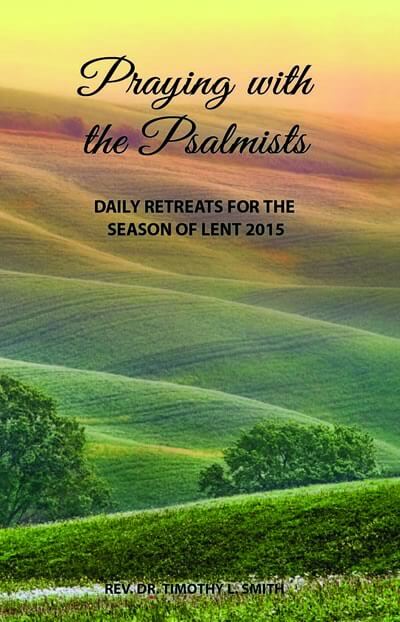 Choosing Unfailing Love
Choosing Unfailing Love
For the director of music. A psalm of David.
How long, LORD? Will you forget me forever?
How long will you hide your face from me?
How long must I wrestle with my thoughts
and day after day have sorrow in my heart?
How long will my enemy triumph over me?
Look on me and answer, LORD my God.
Give light to my eyes, or I will sleep in death,
and my enemy will say, “I have overcome him,”
and my foes will rejoice when I fall.
But I trust in your unfailing love;
my heart rejoices in your salvation.
I will sing the LORD’s praise,
for he has been good to me.
Psalm 13:1-6
St. Athanasius observed, “The Psalms have a unique place in the Bible because most of the Scriptures speaks to us, while the Psalms speak for us.” (cited by Bernard Anderson, Out of the Depths) Any who have ever despaired of God or unanswered prayer can feel the psalmist speaking for them in today’s text. He speaks for any who might be too timid to call the Almighty into account. Four times in just two verses David explodes: “How long?…How long?…How long?…How long?” David sounds like one “beating on Heaven’s door with bruised knuckles in the dark.” (George Buttrick, Prayer) Here is the very man whom God calls “a man after my own heart” (I Samuel 13:34; Acts 13:22), and he is showing how to get in God’s face.
John Calvin, in the Preface to his Commentary on the Psalms, writes about the complexity of emotions that the Psalms bring to the surface:
There is not an emotion of which any one can be conscious that is not here represented as in a mirror Or rather, the Holy Spirit has here drawn…all the griefs, sorrows, fears, doubts, hopes, cares, perplexities, in short, all the distracting emotions with which the minds of men are wont to be agitated.
Today’s psalm belongs to a category that Bible scholars call a Psalm of Lament. This is a genre of psalms in which the psalmist is essentially saying to God, “I’m hurting! The bad guys are winning! And You aren’t doing a thing!” These are psalms where no secrets are hidden from God, and nothing is held back. It is complaint, confusion, and questions with which the psalmists start the conversation with God.
I have a friend whose baby daughter died; he raged at God and walked away from Him. My friend credits his eventual turning back to God as coming when a friend advised him: “It’s okay to be angry at God, just keep talking to Him.” The Psalms of Lament teach us how to keep talking with God when we aren’t happy with Him or with how He seems to be running the world.
But note in this psalm an essential feature of any Psalm of Lament – an expression of trust in the midst of the complaining and bellyaching: “But I trust in your unfailing love.” David takes himself in hand and summons up every shred of resolve he has in him to put his trust in God’s “unfailing love”. He makes a decision to look at his circumstances in the light of God’s unfailing love rather than to look at God’s unfailing love in the light of his circumstances. And that changes everything for David: choosing to trust in God’s unfailing love.
The Hebrew word hesed, translated as “unfailing love”, is one of the most important words in the Hebrew Bible. The word hesed literally means “covenant love”, and is variously translated as “lovingkindness”, “steadfast love”, “faithful love”, and in today’s text as “unfailing love”. But it is love based on the covenant promise of God to His people, “I will take you as my own people, and I will be your God” (Exodus 6:7). Because God has promised “unfailing love”, David calls on that promised love in the midst of his pain and confusion. This is the love that David chooses to put his trust in even when it feels like God has forgotten him.
It is the decision to entrust himself to God’s promise of “unfailing love” that takes the psalmist from pain to praise, from sighing to singing. He makes the same choice that any of us must make when we find ourselves questioning God and complaining. This and the many other Psalms of Lament helps us to keep talking with God even when we do not understand Him. It’s a psalm that speaks for us.
READ REFLECT RESPOND REST
RECORD (optional)


 Choosing Unfailing Love
Choosing Unfailing Love
